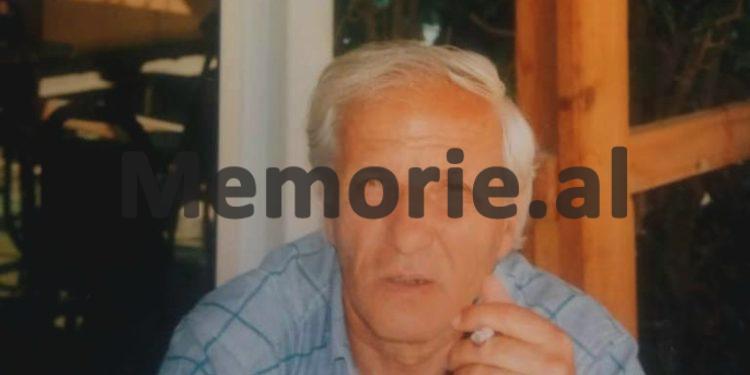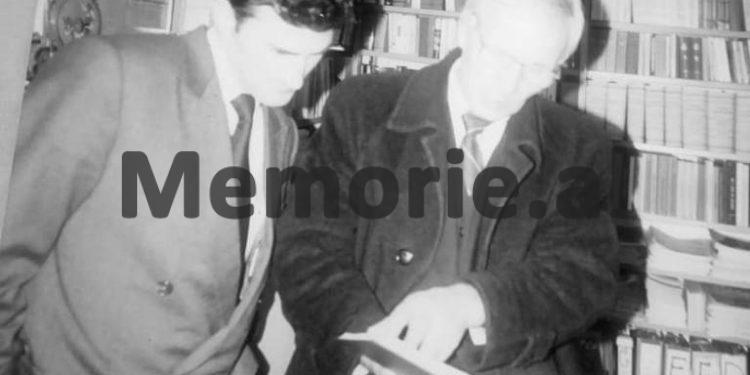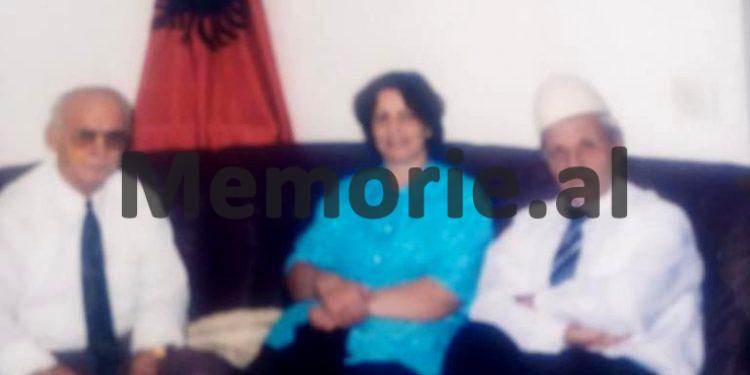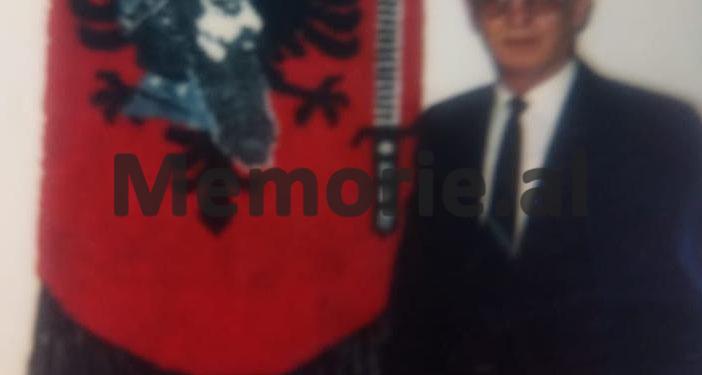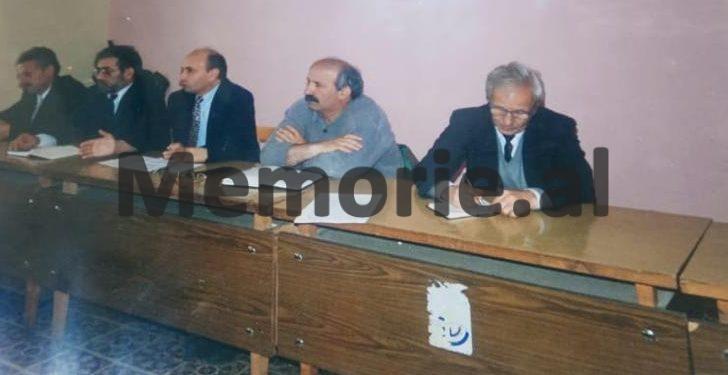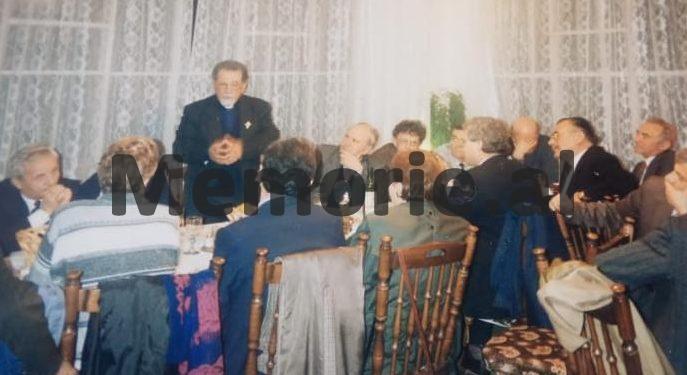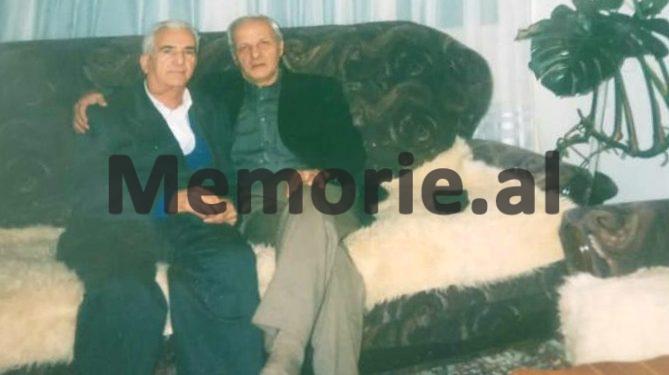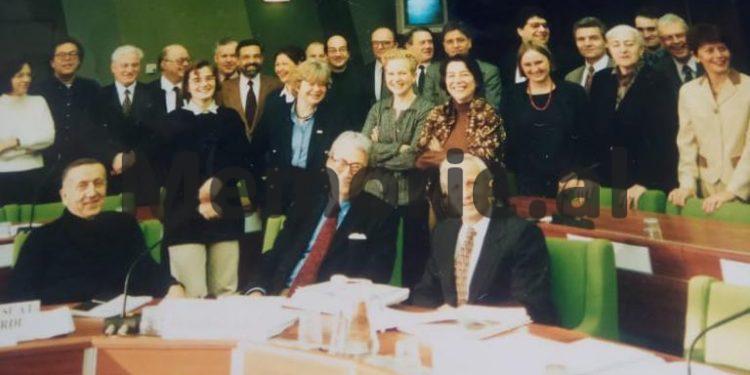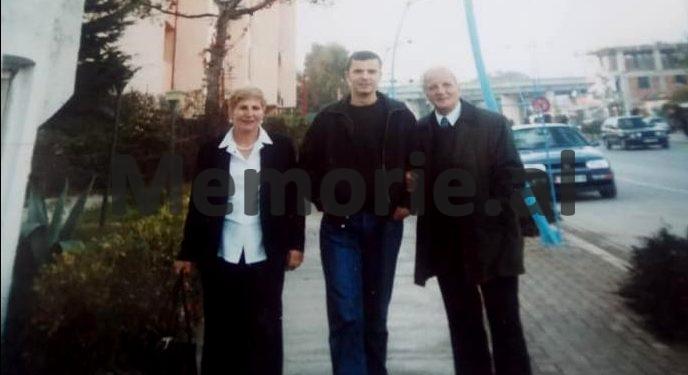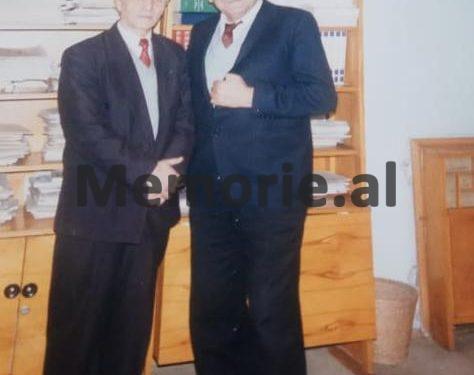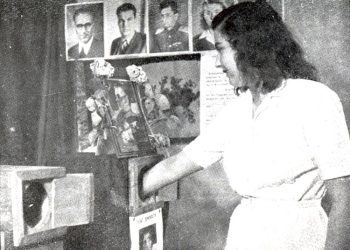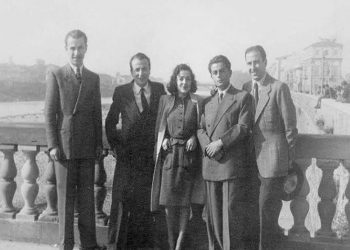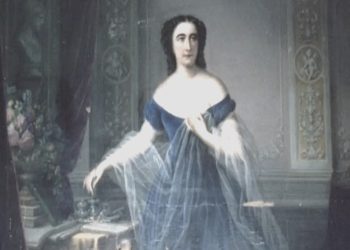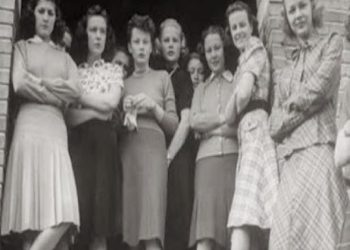Esat Myftari
Memorie.al publishes the unknown story of Esat Myftari, originally from Peja, who was in the high school benches when he was a member of a group of young boys who opposed the official Belgrade policy against the discriminatory policy against the Albanian population living in He started working as a journalist at “Rilindja” in Prishtina, from where he was proposed as a correspondent of the TANJUG Agency, but he refused and in 1963 he was forced to flee and come to Albania, with the aim of seeking help and support. from the mother country, for the clandestine organization of the “Boys of Peja”. Numerous vicissitudes in the mother country and continuous pursuit of the State Security since the time of studies in Tirana and the period when he served as an educator in the town of Shengjin and the villages of the Coast Matë, where he was arrested in 1975, after he had officially requested repatriation to his homeland Kosovo, sentencing him to ten years in prison on charges of “agitation and prop agenda ”, which he suffered in the Spaç camp. The whole painful story of the journalist, publicist, researcher, translator, MP and diplomat, Esat Myftari, is described with a literary mastery in his book, “Your death, my life” an autobiographical novel that has just come out from the Publishing House “Lena Graphic Desing” of Prishtina, and with the permission of the author, will be published in parts by Memorie.al
The unknown story of journalist, publicist and writer Esat Myftari
Esat Myftari was born on June 16, 1940, in the city of Peja in Kosovo, where his family originally came from. He completed his first elementary school education, 7-year-old and high school, in his hometown, completing them in 1959. Also, in 1959, Esat, a 19-year-old boy, began his studies at the Faculty of Law of the University of Belgrade. A lover of history and literature, he started writing at a young age when he was in the 7-year school benches and in the faculty period, he became a member of the Literary Club “Përpjekja” based in the City of To the student of “New Belgrade”, where he is affirmed quickly and from time to time, he writes poems and critical literary views, but due to their content, he does not send them for publication.
In 1961, after successfully passing the relevant competition, Esat started working as a journalist in the daily of the province of Kosovo, “Rilindja”, where he is assigned to cover the chronicle of the city of Pristina and the Kosovo Trade Unions. In the same year, he was offered a qualification scholarship at the Yugoslav TANJUG Agency, with the prospect of becoming a correspondent outside the then Yugoslavia. But his joy at the qualifying scholarship that was destined to send him abroad was quickly dashed, as the specialization offered to him was conditional on his membership in the Communist League of Serbia, which 20-year-old Esat refused. categorically.
Meanwhile, in 1963, he participated in a group of young men who disagreed and were against the policy pursued by official Belgrade towards the Kosovo Albanians and wherever they were in their lands under Yugoslavia, and on behalf of the “Peja Clandestine Group”. , as their representative, crosses the border illegally and comes to Albania. Esat’s goal as a representative of the “Illegal group of boys of Peja”, was to establish contacts with the Albanian state and to seek various support and assistance for the well-functioning of that group of young boys, which aimed to resist the discriminatory policy of official Belgrade to the Albanian population in Yugoslavia.
In 1974, some members of this group were arrested by the official authorities of the Yugoslav Ministry of Internal Affairs, accused of participating in the events of 1964, when the Albanian national flags were unfurled in the main cities of Kosovo and when they were taken strict police and judicial measures against them. The main motto of this mass movement, which was the first of its kind in post-war Kosovo, was the unification of Albanian lands with their “mother” state, Albania.
Meanwhile, Esati, who was in Albania, as well as some of his Kosovar emigrant compatriots in Albania, gained a right to study and in 1965, he began his studies at the Faculty of Natural Sciences in Tirana, in the “Bio-Chemistry” branch. After the third year of studies, disappointed by the official policy of the communist regime of Enver Hoxha and the treatment of Kosovar emigrants in Albania, who upon their arrival in their homeland, it seemed that “from the rain they had heavy hail”, interrupts his studies and requests repatriation!
Of course, this was not approved by official Tirana and in 1969, Esat started working as a teacher in the 8-year school in the town of Shengjin, in the district of Lezha, where he worked until 1974, from where he was transferred to the village of Tale. of the Mata Coast, where he also worked diligently. As during his entire period of work and residence in the district of Lezha, Esat was regularly monitored by all means by the State Security organs, even in the school where it was said that he had been sent on purpose, as they feared an escape from his opportunity to go to Yugoslavia from Shengjin, he is arrested and sentenced to 10 years in prison, accused of “agitation and propaganda against the popular power”!
After serving his full sentence while serving his sentence in the Spaç camp, etc. (not benefiting from any reduction of the sentence), Esat was released from political prison in 1985 and returned to the district of Lezha where had worked and lived before the sentence and in 1986, he started working as a worker in the Paper Factory in Lezha. That same year he started a family and then two sons were born.
In 1990, at the beginning of pluralism, Esat took an active part in the popular movements for the overthrow of the communist dictatorship in Albania and with the establishment of the branch of the Democratic Party for the district of Lezha, at the beginning of 1991, for his past and contribution. great at the beginning of those popular protests, he is elected secretary of that branch.
Also, as a result of that contribution, in the first pluralist elections of March 22, 1991, Esat was elected a member of the Democratic Party in the People’s Assembly, representing the voters of the Mata Coast, where he had worked as a teacher until the day of his arrest in 1975.
A year later, in the autumn of 1992, he was appointed Director of the Diaspora Directorate at the Ministry of Foreign Affairs of Albania, headed by the Minister, Alfred Serreqi. In that position, Esat worked diligently until 2000, when he was appointed diplomat at the Albanian Embassy in Riyadh, where he remained until his retirement.
Since that time, Esat has been devoted to his passion, writing, studies and translations and since 2011, he has started publishing several books, which have been welcomed by critics and readers, also because of their subject matter, as well as the variant of Gegërisht that he wrote them, which is very rare in Albanian publications of the mother country!
The first book published by Esat Myftari is “Emrush Myftari” (monograph), and after him come: “Kosovo and Enver Hoxha” (study), “Political profile of Esat Mekuli” (monograph), and “Your death, life ime ”, which is an autobiographical novel, where he has skillfully and chronologically described most of his life, from family and life in Kosovo as a high school student, escape to Albania, many vicissitudes from surveillance of State Security prosecution, arrest, investigation, trial and deportation to Spaç prison.
All the events and everything described in the book “Your death, my life”, are real and the characters there are presented with their concrete names and surnames, while only those people who badly affected his life, (mainly, those of bodies of the Ministry of Internal Affairs of that time, such as operatives, investigators, police officers, heads of the Ministry of Internal Affairs and the Branch of Internal Affairs of Tropoja, Lezha, witnesses in his trial, etc.), the author was has only changed the names, giving them their real surnames.
Continued from the previous issue
Excerpts from the book “Your death, my life”, author, Esat Myftari
Investigator game with my pictures
The investigator had spread on the table a bunch of carefully selected photographs, for which he would seek explanations from Ridvan. The first photo he handed her was this one that had caught him in a beautiful sporting moment: it was an imitation of a game, because there he was seen kicking the ball into a strip of land, the edge of the canal, behind the zatra. Yes, he was a talented guy for football, and even in high school the coach of the city team had torn him to show up for training, even for observation. But Ridvani had rejected him because of the economic situation. My father also came to my aid because of this. Second in line was his photo as a sophomore in Belgrade. Ridvani was neither beautiful nor photogenic, but he had come out very fresh and attractive: with black raven hair and an optimism that made his face shine. Those were the days when he had already begun to accept Belgrade as a city of millions, when he was released into free discussions with his classmates, with whom he had gone to see Sartre “Clean Doors” and quarreled with the role of his compatriot; when through a publishing house in Dresden he had started to enrich his library with albums that cost only 200 dinars, he was fascinated with the classics: Goja, Renuar, Toulouse Lotreque, Rembrandt, etc., it was the picture that his father also liked very much. Even, after Ridvan left for Albania, his father had hung him on the wall in front of his bed and a few seconds before he breathed his last, he had stared at her, he had shed slow and cold tears for her cheeks. and then had his head tilted over the underside in the last farewell sign. Even the t-shirt he wore in his modest stature, belonged to a classmate who, after seeing the photo and liking it very much, had said to him: hold it, that if I hit you in the face and you will mass!
The third, as the investigator’s professional choice, was the collective family photo, shot in a moment of shared grief, as they were about to move to Izmir, Turkey. Investigator Grigor Selenica handed him over without saying a word, but he was watching his reaction. At first, he saw a shudder in his dim eyes, but it did not last longer than a hop. Immediately after that, Ridvan’s face was hardened with feces of savagery. But it was a futile attempt by him to cover up the internal wave of commodities. In the frame of that real rectangular card, gathered all his family, the parents of the five brothers – the eldest was missing because he had shot a soldier in Zagreb – on a distant morning of the short twenty years, when their lives pulsed strongly : a father with a French hat on top that was held over a neck full of muscles, a mother with a handkerchief tied well – with that brown coffee that matched nicely with the color of her eyes, which covered her hair and her brother with her face young age lyrics. Among them was himself, in a blue shirt and brown pants, we had just bought for Eid. It was like bringing a piece of the world with a magic wand to fade and be preserved somewhere in the memory, but now, in such strange circumstances, they were appearing to tell him that this world is infinitely wider than this cruel siege of walls and that for people when separated there is always hope to be seen again, however in non-Dutch forms like his, since the soul is alive and in perpetual motion and has no bayonets that grip it once and for all a place.
The investigator who left his desk. He was looking through the drawers but Ridvan liked to interpret it as his wish to leave him undisturbed in the enjoyment of a family moment and of a western and offended youth. Ridvani has already given in to the waves of emotion, and you make no effort to curb them or overlay other imaginary images. But when the shirt clung to his back and his heart was pounding with a frightening knock, Ridvani was convinced he had fallen into the trap of the investigator. Only then did he roar as if he were passing through bodies scattered with snakes and threw the gift of danaje on the ground.
Late spring night, when the city was asleep and looking out the windows, on the street, the lights flickered through the electric poles without starting anything. A completely dull night for outside harassment.
– As you wish, I had it for you. It was a weakness of mine, I admit. Our leader has the right to order us not to fall into sentimentality towards our enemies. But for this photo – the investigator took out of his pocket the photo for which he had planned this investigation session – you are obliged to answer me, otherwise I will consider it as an aggravating fact for you and I will record it as such “.
Investigator questions about my relatives from Kosovo that I had appeared in the photo
He took the other pictures and returned them to the table.
It was the photo taken in a family evening laid in honor of his cousin who came from Peja with the school staff and some of his friends. Among them was the poet Bujari, affirmed a few years ago with a political poem, where he stigmatized the Serbian press, but recently they were terrifying the good name of that moment with new street by-products.
– Who set the dinner -, was the first direct and concrete question related to them.
“That, this and that here,” Ridvani pointed.
– Here we do not deal with pronouns, but with nouns.
– You know who these are.
– What about the others?
– This here?
Ridvani showed an elegant woman with beautiful facial lines, whom he had put his hand on her shoulder.
– She is my uncle’s daughter, Luljeta.
It was thought for a while, but passed without comment. Apparently, someone had given the order not to be investigated for it.
– Yes, with this silk scarf and negligent look?
– Classmate. She graduated in philosophy in Sarajevo and today works as an assistant in the department of pure philosophy in Pristina.
– What does this mean, pure philosophy?!
– In the sense that all philosophers and all currents are taught there, without exception.
– Why, with us I am becoming a dirty philosophy ?! cried the investigator.
– How do I know why, they say so.
– All right, go on!
– That’s it.
(One day, before that evening, the two of them were walking down the Boulevard of the Nation without being disturbed by anyone, and the fact that the investigator was not mentioning this guilt, made them realize that they had escaped the eyes of his horses. all the time he had extended his arm, even in the square in front of the Skanderbeg monument, although it was rumored that Kosovar tourists were observed here step by step as they broke away from the group. resilient heart: let these, he had said, it is enough that we know who you are! You were a good example of patriotism and courage. filled with the former dignity, when it had value and was properly valued, and now that we were shaking it, they gave an account for a handshake or a suspicious look! I am afraid that they are following us, he told her at the beginning, but please do not grab, to resent. They will keep m I know what they intend to do, no matter how we behave in this square. And they have nothing to do with you. Many drives you away and I believe that after what you are seeing and hearing you will not long to come again. But when you return, harass my repatriation work once again. She squeezed his palm hard and exhaled in pain: I’m interested, brother Ridvan, but they still have reservations for you. The theory of the game of Albanian organs with you has spread. There are some small legends woven around your name which even they themselves do not believe, but only for revenge. Besides, they know that you are in conflict with these locals, therefore they take revenge with their hands here. Let the Albanians be eaten among the Vedas, like dogs! they say. I am well informed about this.)
– What about sitting behind your poet?
-He is his wife, so he works as an editor in the publishing house “Naim Frashëri”.
– Even that of your group?
– Of course, I believe you came across your materials, because she also came here two years before me, how they escaped, and I believe it was her own expression. She is the daughter of the most educated imam our city has ever had, with studies in Al Ahzar, a patriot with her mother and we killed them in the well by the Serbian communists.
– Was he a reactionary?
– He was Albanian.
– That we know well this category of clergy who are kept holy during the day, and at night they plot!
– Mr. Investigator, we are talking about Kosovo occupied by the Slav-Orthodox, not about Albania.
– What does this mean: Slavo-Orthodox that you Kosovars repeat to the point of annoyance? – Investigator Grigori asked with his lips parted and rushed forward.
– These are definitions of historians, because the Slavic Catholic states, such as Croatia and Slovenia, have been with us!
– When this is the case, why are you against Tito?
– Because he is supranational!
– Then, you, as a nationalist drink, what did you want to come to this red, pro-Slavic and anti-Soviet Albania?
– Because we were told that the Yugoslavs had deceived you.
– Leave the broccoli … we know what was said that night, we had our column there. But anyway, these people here are meaner than you, we know everyone wants to be repatriated, but they are not able to formally apply. At least at this point, you were more honest. But rest assured that even your people do not love you anymore! Now you are just a source of infection for everyone, but, in addition, you will have to pay some debts to us. Does he, your cunning poet and acrobat, think that with a poem he would throw dust in our eyes?!
– He works at ATSH and the positive evaluation for him is official!
– The one here, who came as a thief to Shengjin to show solidarity with you? Who said everywhere that you would go on a mission to Kosovo, while he knew what an enemy you were? That you pulled him inland, into the second belt of sand, and there you stayed long talking.
– This is engineer Namik, as well as my close friend – said Ridvani and frowned.
(It was useless to talk to him about the hilarious spirit of that group that maintained mental balance even when his father publicly stripped himself in the cafe, even when he left his widowed mother with his hands on his breast, and when his child died first in the distant and deaf Tepelena, even when he realized the folly and futility of coming here. He had been begged to return him, but he had refused with a threatening gesture: I will jump out of the car but you took him by force! he had told the police , when as a student, for a pre-prepared incident, he was re-interned in Çermë. He was a boy with powder, Namik, he did not want to parade under the sting of the Serbian officials of Peja. But to whom should you talk about these things, oh God ?)
– Defendant, let me tell you one last time: what was said during dinner?
– I told you, they were memories of high school and student time!
– Deposits tell me something else.
– Their work.
– However, know that we have you in your fist and very soon you will all meet in the same bay, did you hear?!
Ridvani looked him in the eye thoughtfully and with the same surprise, who knows for the seventh time. The proverb said: Albania … I really did not know you!
Investigator questions for two academics of Kosovo origin
– And, last for tonight: Who are these two men? – asked the investigator for another collective photo of academics, appeared in front of the stairs of the Institute of Linguistics.
– My two professors, Ahmet Kelmendi and Menduh Begolli.
– Have you met them?
– Yes.
– Where?
– In Tirana, in front of the windows of the International Book.
– Who mediated your meeting?
– Nobody, it was a coincidence.
– Aren’t they called?
– No, work that is verified. I had come for repatriation issues and the date was set by others, not me.
– What did you tell them about the Language Congress?
– Nothing special.
– I love the original expression.
– No problem, I did not say it secretly, but they opened it: “You, my professors, have come to sell the jewels of Kosovo for coal”. I am repeating this to you too, because I am convinced that the literary language does not tolerate regional bias, it is the common treasure of the whole nation.
– “Gegëria cannot be humiliated like this, nor should the Albanian language be impoverished in this kind of religion”, did you say that?
– I do not remember. Maybe. I’m not so wrong.
– You, the ignorant and ignorant prince of Gegëria! Cried the investigator, giving him a gas full of pleasure and boasting.
The bell rang. The investigator reached out lazily and grabbed the receiver.
– All right – he said to the person across the wire.
The threats of the vice president of the Lezha Branch that he would sentence me to 20 years
Five minutes later, a tall, red-haired man with straight hair like a wire came into the office.
– Hey, as always, stubborn, right? – addressed the investigator.
– Yes, as always, the black of yourself!
– Listen here, – turned to the newly arrived Ridvan, – I am Ligor Vllahu. These days I have been appointed vice president here. In recent years I have served as branch president in Tropoja and I know very well the mentality of the mountaineers. You, the mountaineers, have an extraordinary feature, which I appreciate very much: promise. When you give your word, hold on to it correctly. Therefore, I tell you that if you were reasonable and cooperative with us, we are ready to lighten the sentence. And keep in mind that, otherwise, we can change the charge, but then you will be sentenced to 20 or 25 years in prison or worse … and reach out.
Ridvani gathered himself and stared at us with the contempt he felt at that moment for this primitive psychologist and replied, leaving his hand suspended in the air.
– First, Mr. Vice President, I am not a mountaineer. I was born and raised in the city of Peja, which dates back to Roman times under the name Syparantum. In a word, I am not a bastard of any nomadic tribe, like any other, but with old citizen skin. As for the articles, I do not understand that profession.
– Like that?
– Yes.
Ligor Vllahu, distracted by this sudden and impatiently proud response, with that allusion to his origin, inflamed in his face, left the office with big steps. The investigator, who was standing like a fence near him, shouted: Mark! And Mark, who was waiting behind the door in anticipation of this call-out, opened the door and entered with handcuffs in hand.
Grigor Selenica, as we agreed with the new vice president, ordered:
– Connect this Kosovar dog!
Mark, in order to give the living proof before the eyes of his superior, not only brought the handcuff fillets to zero, but, frightened that there was no free space left, called for help and the hem of his dry military jacket, to further the tightening. But what came before their eyes in astonishment were two dim hands that were swell before their eyes and were darkening with an alarming speed.
– Quick! – investigator Grigor Selenica called again.
Chief Mark grabbed her by the arm and led her to the fountain, at the end of the hallway. And there, for two hours after midnight, Ridvan’s hands feel the soothing rustle of cold, healing water. Thus, our Ridvani enjoyed only a small part of the torture session, with which he was usually terrified of being imprisoned at the beginning of the investigation. But inside, however, he felt a sense of pride because the last fatal outline did not scare him so much and he was convinced that courage is perhaps the main pillar of honor in life.
When he was returned to the dungeon, he was already asleep for a third time and was not returning. Grief began to swallow him mercilessly: in each investigative session he was seeing different images of the Albanian reality that had never crossed his mind. When he was out, Ridvani, even though he had been told that the number of Greek and Aromanian minority investigators was disproportionate to their exact number as a minority, did not believe him. But now, alas, it was coming true. Opinions, however, were divided on determining the cause of this disfigurement. Some said that Enver did this in order to prevent the mitigation of the investigation, where no mercy was required; others insisted that he was trying to spread some Albanian anger over allogeneic elements; while the third – and these were the majority – insisted that the first two explanations were mere hearings of the ignorant, that everything was a coincidence, that he was a monster who had neither nation, nor religion, nor morals, so there was no need for enter into such elaborations. According to the latter, he was nothing more than a dictator who knew only his own interests. That he had committed many crimes since the war and that he was now a hostage to those crimes. Meanwhile, what was stabbing him like a knife was the fact that he had handed over to these elements the trustworthy files of Kosovars, where they had once confessed, in a climate of false trust, their selfless efforts to liberate themselves from the Serbian yoke! And, tonight, investigator Grigor Selenica had just tried to play this dirty game!
Horribile dictu!
Continues tomorrow




